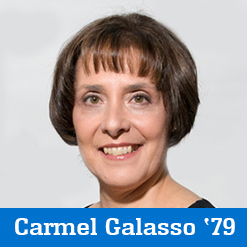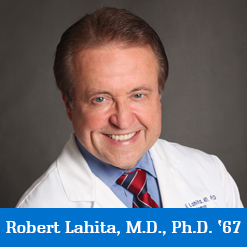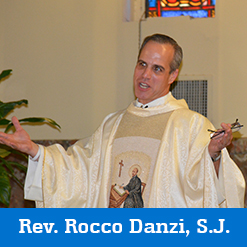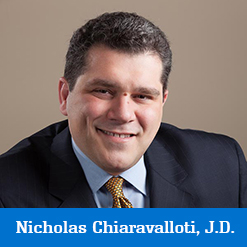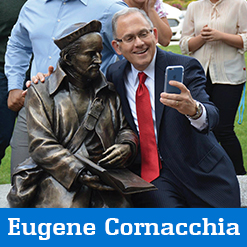#JesuitEducated
“Jesuit education is centered on the formation of the whole person. It challenges us to question, expand beyond our previously held comfort zones and move out to the furthest frontiers of the imagination and greatest needs of our times.”
-Rev. Rocco Danzi, S.J.
A Saint Peter’s education is both personal and powerful. In fact, there aren’t many places to experience an education quite like ours. We’ve been committed to rigorous academics, a supportive environment, and Jesuit values since 1872.
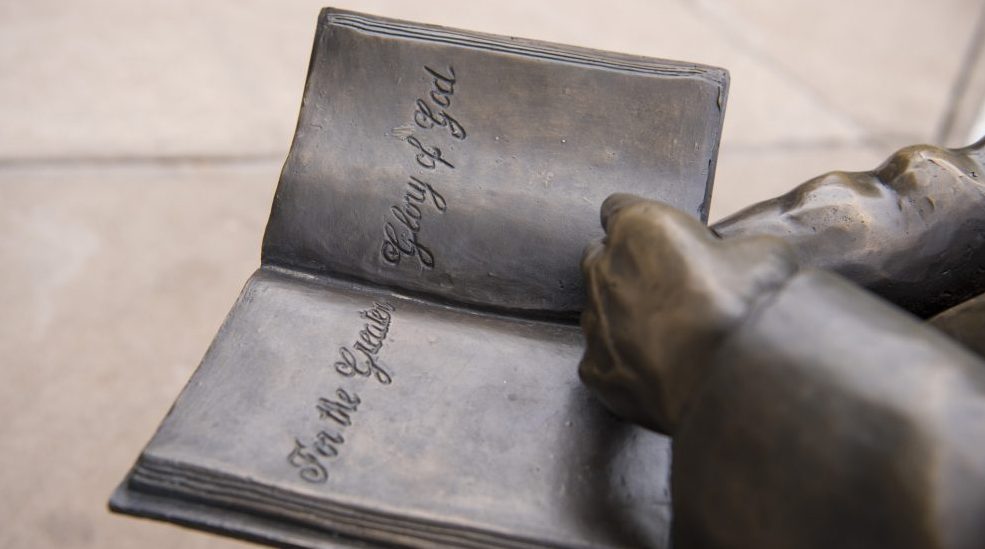
For nearly 500 years, millions of people across the world have experienced the power of a Jesuit education, including Pope Francis. In honor of the Pope’s upcoming historic trip to the United States, Saint Peter’s University partnered with the Association of Jesuit Colleges and Universities (AJCU) and the other 27 Jesuit colleges and universities in the United States to explore what it means to be #JesuitEducated.
“Jesuit” means many things to many people. Here’s what it means to us:
A Jesuit Education Is…
Not an end in itself, but a means to the service of God and others.
Student-Centered
Adapted to the individual as much as possible, to nurture an independent and responsible learner.
Characterized by Structure
With systematic organization of successive objectives and systematic procedures for evaluation and accountability.
Flexible
Freedom is encouraged and personal responsibility and self-direction expected; the teacher is an experienced guide, not primarily a deliverer of pre-packaged knowledge.
Eclectic
Drawing on a variety of the best methods and techniques available.
Personal
The whole person is affected, with the goals of personal appropriation, attitudinal and behavioral change, and overall excellence.
Our students come here to earn a degree, but leave with so much more. Imagine walking across the stage at graduation, knowing you will be prepared for career, family, and life. That’s pretty powerful.
Reflections from...
Carmel Galasso '79
In the book Go Forth and Teach - The Characteristics of Jesuit Education it states “Jesuit education acknowledges God as the author of all reality. All truth and all knowledge. God is present and working in all of creation: in nature, in history and in persons. Jesuit education, therefore, affirms the radical good of the world ‘charged with the grandeur of God.’ And it regards every element of creation as worthy of study and contemplation, capable of endless exploration.”
A Jesuit education is an education that develops the hearts and minds of men and women to help them to become leaders. Through Jesuit education, there is a development through learning how to live, how to be grown-up men and women. Jesuit education teaches us Magnanimity: The virtue of great and small, great hearts, minds and ideals. The response of what God asks for us and those little things that open our heart to others. This education helps us to develop human virtues: loyalty, faithfulness and dedication.
Another great component of Jesuit education is service -- to be open to others -- especially the poorest and neediest. We are challenged by how we can improve the world we live in by using our gifts and talents as men and women for others. Through Jesuit education, there is a lifelong commitment to service and academics. It is not a profession but an attitude. In my experience, both as a student and alumna of Jesuit institutions (Saint Peter’s and Regis Universities), there is a great relationship for Jesuit and lay associates to grow in friendship and mission. Through the many Jesuits and lay professors, there has always been a seamless thread in all classes of ethical values. And a sense of dedication that will assist students, perplexed if you will, to discover a genuine purpose in life.
A Jesuit education is about a response of Christian justice and how it operates in a world of crisis and computers. At Saint Peter’s University, as in all the Jesuits institutions, there continues the quest for human meaning, the search for the sacred and the profane in our human condition. As a student, the education I received, through Saint Peter’s, then College, now University, was provided in a very nurturing environment. I always felt welcome and that I belonged to something. As an alumna of the University, I feel that I belong to something bigger than the small world in which I work and live. My college experience prepared me to be effective and conscientious, to work hard and to obtain results. I learned to interact with others and to manage. Today, for me, and in my interaction with the students that continue to seek this education, it is the same. The visages of students are different, but they are the same type of students, anxious to learn to make their place in the world.
For me personally, service has been a priority in my careers as a teacher, campus minister and social worker. The values that I learned through my Jesuit education have led me to my career in service for others. Currently, as Director of Housing Service for the United Way of Hudson County, I have been instrumental in working to house homeless individuals who otherwise would be on the streets. I believe in and have embraced the ideals of Jesuit education within my career, my life and in my church.
Jesuit education may well be summed up in Ignatian “Mirar Arriba” -- “To look up towards spiritual ideals to sustain us through times of change.”
Return to topRobert Lahita, M.D., Ph.D. '67
They came by the boatful. On Sept. 11, 2001, 1,000 injured victims of the World Trade Center attacks in New York City crossed the Hudson River to receive emergency medical assistance at a makeshift triage area assembled in Jersey City’s Exchange Place pier. The wounded were met at the scene by then-emergency medical director of Hudson County, Robert G. Lahita, M.D., Ph.D. '67, FACP, FACR, FRCP, and a small group of emergency medical technicians and paramedics. For Dr. Lahita, being at the location was an act of fate. Initially, he tried to drive into New York City to help victims, but was instead redirected to the York Street pier by police due to the closing of the Holland Tunnel.
For several hours, Dr. Lahita and his team provided the only medical aid at the site, his more than twenty years of experience as a physician and training in emergency operations preparing him to care for the individuals affected by that tragic day. Lacking medical supplies, Dr. Lahita utilized items from office buildings within the area to treat the wounded. Broken bones were treated with splints made of Venetian blinds and chairs served as stretchers.
“It was a great honor to be a part of that day,” said Dr. Lahita. “It was the natural thing to do. But I saw a lot of stuff that was very upsetting. That day was etched in my mind forever.”
Dr. Lahita’s selfless act personifies the Jesuit principle of “men and women for others,” a foundational element of the Jesuit education he received at Saint Peter’s. After graduating with a bachelor of science in biology in 1967, Dr. Lahita went on to obtain his Ph.D. in microbiology from Thomas Jefferson University and M.D. from Jefferson Medical College (both in Philadelphia, Pa.) before pursuing certifications in a number of areas, including as an EMT and in advanced cardiac support.
With a background in internal medicine, clinical immunology and rheumatology, he has served in various hospital appointments and positions, such as associate attending physician of The Rockefeller University and Hospital of Joint Diseases, both in New York; consultant for The Hospital for Special Surgery in New York; senior attending physician at Saint Luke’s Roosevelt Medical Center and Saint Vincent’s Medical Center, both in New York; and chairman of medicine, vice president and senior attending physician at Jersey City Medical Center in New Jersey. He currently serves as chairman of medicine, vice president, and chair of performance improvement at Newark Beth Israel Medical Center in New Jersey. He has also been named to the Board of Trustees of Barnabas Health.
In addition to his medical credentials, Dr. Lahita is a leading authority on rheumatology and autoimmunity, as well as an expert on lupus – even being called to the White House in 1990 to treat “First Dog” Millie, former President George H. W. Bush's and former First Lady Barbara Bush’s English Springer Spaniel, who suffered from the disease. This concentration on immunology began when Dr. Lahita took a two-week elective course under the late Henry G. Kunkel – known as the “Father of American Immunology” due to his discoveries in the field – at The Rockefeller University.
In addition to his vast professional expertise, Dr. Lahita is also a teacher of medicine and has held numerous academic appointments, including associate professor at the Columbia University College of Physicians and Surgeons in New York and as director of Graduate Medical Education at Jersey City Medical Center. Presently, he is a professor of medicine and an adjunct professor of molecular biology and biochemistry at the University of Medicine and Dentistry of New Jersey in Newark, N.J.
Adding author to his extensive resume, Dr. Lahita has written 14 books (and currently working on a new book); co-written, edited and co-edited numerous articles; and completed more than 170 research papers on subjects ranging from lupus to rheumatology.
Despite his busy schedule, Dr. Lahita still finds time for community service. He is the former unpaid director of Hudson County’s Emergency Medical System and, for the past 22 years, has served as the volunteer emergency medical director for Ridgewood, N.J
“I love to help people,” he said. “That’s part of cura personalis, which I got out of a Jesuit education – to make the most of your profession, and do everything that you can do within your profession.”
Dr. Lahita credits his professional success to the Jesuit education he received from Saint Peter’s.
He said, “In a scientific education where one takes chemistry, physical chemistry, physics and so on to prepare for medical school admissions, my education at a Jesuit institution was very different. As a scientist, it is not customary to be trained in theology, philosophy, and the liberal arts the way the Jesuits do it. It is, was and still remains quite unique. It is an untapped, extremely valuable education that most undergraduates do not have, to prepare them for the real world.”
Return to topRev. Rocco Danzi, S.J.
Jesuit education, Pope Francis and his visit to the United States - what are the connections? The heart of our Jesuit educational enterprise is also the heart of Francis’ mission as our Pope: to inspire women and men to believe, serve and love with all of their being. Indeed, it is nothing short of opening the minds and hearts of students, faculty and administration to discover in community and solidarity that they share in the very mission of Christ to transform lives and our world by beginning with the individual.
Jesuit education is centered on the formation of the whole person. It challenges us to question, expand beyond our previously held comfort zones and move out to the furthest frontiers of the imagination and greatest needs of our times. It seeks to always invite people into a two-fold dynamic that insists upon reflection and prayer, but ultimately demands action. The pedagogical movement first happens within, but is not yet complete until it leads to action. Hearts and minds are stirred and then we become engaged in the work of justice and peace.
Pope Francis is clearly a product and participant in this Jesuit educational enterprise. He keeps his message clear and uncomplicated: it is all about Christ, trusting in his love and mercy and hearing his call to love and serve. His visit to the United States is meant to inspire all who gather and jam the streets of our cities to see him. Pope Francis is offering a simple invitation to all to know and love Jesus – a Jesus who desires us and urges all to turn darkness into light and sadness into joy.
Return to topNicholas Chiaravalloti, J.D.
As we prepare for the upcoming visit of Pope Francis to the United States, excitement is building among members of the American Jesuit community – lay and religious, American Catholics and for that matter all Americans. Pope Francis has brought a compassion, vitality and openness to the church that many of us who have studied or worked at Jesuit schools have yearned for from our church.
My relationship with the Jesuits began in high school at Saint Peter’s Prep in Jersey City, it continued in college at The Catholic University of American during the tenure of Rev. William J. Byron, S.J., as president, and continues today as an adjunct faculty member in the masters of public administration program and director of community engagement for Saint Peter’s University. I guess for me the Jesuits are like the line from the Godfather III, “Just when I thought I was out…they pull me back in.”
In all seriousness, I believe there is something unique about being Jesuit educated and working at a Jesuit school. My passion and understanding of service and for civic engagement were fostered and encouraged by my Jesuit education. Each and every day, administrators, staff and faculty members attempt to instill this same passion in today’s students.
In the MPA program at Saint Peter’s, we talk a lot about service. Many of our students are already working in or have a desire to work in the nonprofit and government sectors. They have exhibited a commitment to creating a better, safer and healthier world. As faculty members, we hope to fuel this passion and provide some of the knowledge and skills needed to tackle the many challenges facing society.
This call for action is moored in an expression often used by the Jesuits’ founder, Saint Ignatius, “ite, inflammate omnia” or “go, set the world on fire.” Similarly, Pope Francis has set an agenda for the Church that focuses on a “culture of encounter.” In the same way he called on priests to leave the sanctuary of the rectory and minister in the streets of Buenos Aires, he is calling on us to find love in ourselves, our neighbors and to start working on solutions to the problems facing our communities.
For many American Catholics, especially those of us involved with Jesuit universities, Pope Francis has captured this call to action and extended it beyond Jesuits and beyond the 1.2 billion Catholics in the world. And this is important because urban schools like Saint Peter’s continue to serve a diverse student body of many cultures and religions. Regardless of one’s faith, the message remains the same and can be summed up in the Jesuits’ former “Father General,” Fr. Pedro Arrupe’s challenge: “our prime educational objective must be to form men and women for others.”
Return to topPresident Cornacchia
Statistics, facts and figures…I have always appreciated the value of data and the use of quantitative methods in seeking answers to compelling research questions. Data can be extremely useful in understanding and addressing public policy problems and in the ultimate pursuit of truth. In fact, an entire industry focused on data is growing exponentially every day. Regardless of the value data can provide, any leader, teacher or student knows that this type of analysis can only go so far in addressing real world problems. This is where my passion for Jesuit education and Catholic social teaching comes into consideration.
My personal experience with Jesuit education began at Fordham University in the early 1970s. From protests of the Vietnam War to Watergate, I was introduced to the Jesuit ideals of intellectual rigor, critical analysis, integration of knowledge and deep concern for moral and ethical questions, during a time of great social and political upheaval. Jesuit education and Catholic social teaching calls us to be agents of change for society and the world and this calling is what attracted me to Saint Peter’s University, where I served for decades as a professor, provost and vice president for academic affairs, and today as president. Here on the frontiers of urban society, we educate first generation students from incredibly diverse backgrounds to go forth and change the world.
While Jesuit education is ingrained in who we are and what we do at Saint Peter’s, the Jesuit tradition was not as readily familiar to the general public, that is until Pope Francis was elected as the first Jesuit pope. Pope Francis truly is an extraordinary example of Jesuit education and Catholic social teaching in action. He has already had a greater impact than any pope in recent memory. He has been a catalyst for young people and Catholics who have fallen away from the Church to reconnect. His welcoming message of inclusion and compassion is connecting with the Saint Peter’s community as we have seen an increasing number of our students attending Mass at our University church and participating in campus ministry activities.
The hope and promise of Pope Francis’ visit to the United States is that he will bring a message of peace, justice, love, and most importantly, grace and mercy to an America that lately has shown little of these important values. This visit provides an exceptional opportunity for us to share the ideals of Jesuit education with the country beyond our Jesuit campuses.
Return to top
